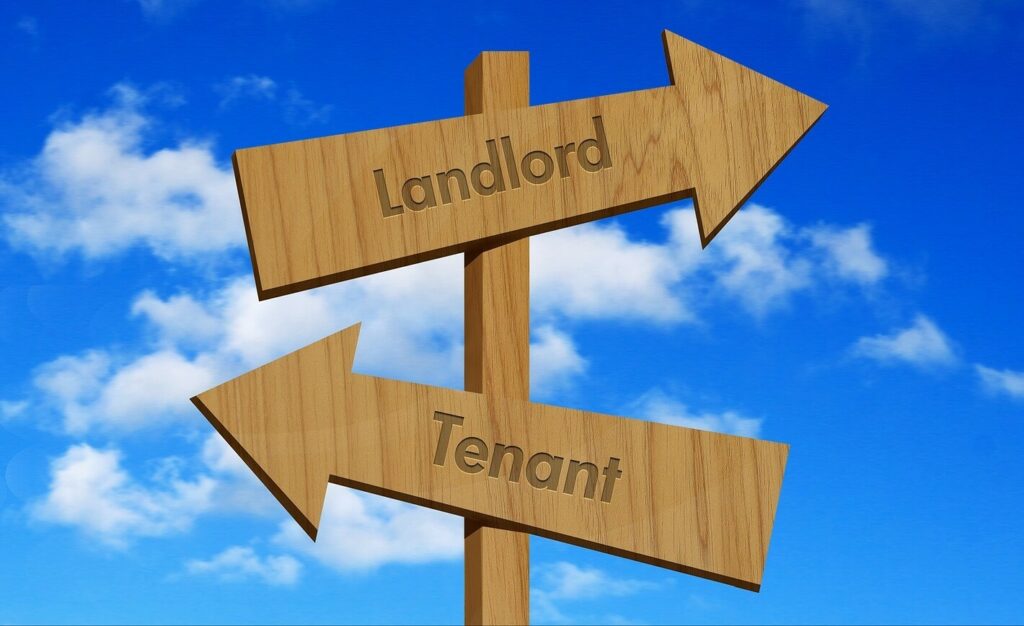As a landlord, you have many responsibilities. You must maintain your property, pay taxes, and take care of your tenants. As a tenant, you have your own rights, too. To run a successful rental business, landlords must understand federal and state laws regarding renting residential properties. Landlord-tenant law affect security deposits, lease agreements, living conditions, and evictions.
In this article, the team of attorneys from New York’s boutique Real Estate law firm Balsamo, Rosenblatt & Hall, will teach you about the essential landlord-tenant laws to remember. Adhering to these will protect your rental business and your reputation as a landlord.

LAWS ABOUT DISCRIMINATION
Disputes between neighbors can easily deteriorate into conflicts between landlords and tenants. To prevent this from happening, it is important for tenants and landlords to respect each other. In order to do so, it is important to check the laws that regulate discrimination against tenants. Discrimination against tenants can take many different forms. For instance, landlords are prohibited from discriminating against renters because of their race, ethnicity, religion, gender, age, marital or handicap status. It is against the law to discriminate against someone because of a disability as well.
All members of our community are entitled to legal representation, regardless of their financial resources. Balsamo & Rosenblatt serve renters of a wide range of backgrounds, but they are especially dedicated to the most vulnerable groups, such as the indigent, the elderly, immigrants, blue-collar workers, and the disabled.
LEGAL LEASE DOCUMENT
Before a tenant moves in to a rental property, they will need to sign a lease. As the “landlord,” you’re responsible for keeping a copy of the lease in your files. The lease should include the name of the property and be signed by both parties.
LAWS ABOUT REQUIRED DISCLOSURES
When renting out a property, you will want to include certain disclosures about the property and the lease. Some of the most common disclosures include the amount of rent, the terms of the lease (such as the length of time the tenant will be renting the property), the amount of any security deposit, whether or not pets are allowed, and any restrictions on the tenant’s use of the property (such as not being able to damage the walls).
LAWS ABOUT PROVIDING A SAFE ENVIRONMENT
All tenants have the right to feel safe and secure in their homes. It is the landlord’s responsibility to maintain the property and make sure that the premises are free from hazards that could cause harm to the tenants. If you have a “no-pets” policy in your lease, you should make sure you clearly state this in your lease and in any advertisements for the property. If you receive a complaint from a tenant about a hazardous situation in the property, you must take action to make it safe. If you do not take action, then you are responsible for any harm that comes to the tenant.
Your landlord is required to keep your unit in habitable condition and to comply with all state and local health and safety codes. Part of this responsibility is to make timely and appropriate repairs. Sometimes, landlords intentionally neglect to perform these repairs, hoping that tenants in rent-controlled apartments will leave. This is a form of landlord harassment, and you do not have to put up with it.
The experienced team at Balsamo & Rosenblatt have handled many failure to repair cases in the New York City Area, and can put that experience to work for you. They are here to advocate for you and to help protect renters from corrupt landlords.
LAWS ABOUT MAKING REPAIRS
All landlords have a duty to make repairs to the property. Depending on the lease, the tenant may have a right to expect the landlord to make repairs. You can check your lease and see if there are any specific areas where you are obligated to make repairs. If you do happen to have a duty to make repairs that fall under the terms of the lease, you must make those repairs immediately and without question. You are not allowed to ask the tenant to foot the bill for those repairs.
Many tenants are unsure of what to do when their landlord fails to maintain their unit. While the New York Civil Code and local rent ordinances offer protections for renters, they can be hard to parse without professional help. However, you do have legal options, and you should not feel afraid to exercise your legal rights.
It is a good idea to speak with an experienced tenant attorney to discuss your options first. The talented professionals at Balsamo & Rosenblatt can walk you through your options and help you determine your best course of action.
LAWS ABOUT SECURITY DEPOSITS
All landlords should require tenants to provide a security deposit upon the tenant’s move-in. This deposit is meant to guarantee that the tenant follows the lease and pays their portion of the rent on time. After the lease ends, the landlord will provide the tenant with a full refund of the security deposit. The amount of the deposit will depend on the specific state law for the area. Most states have a limit on the amount of the deposit that can be charged.
LAWS ABOUT TENANT RIGHTS TO PRIVACY
All tenants have the right to expect that their privacy will be respected by the landlord. You must keep the tenant’s personal information safe and secure and not use it in any advertisements without the tenant’s permission. You must also not enter the rental property without the tenant’s permission. This can include breaking in and entering the property if you were not given permission by the tenant to enter the property.
At Balsamo, Rosenblatt & Hall, we believe everyone deserves to feel safe and comfortable in their home. Our team of attorneys use their collective experiences, practical thinking and litigation skills to achieve winning results all while keeping client costs in mind.